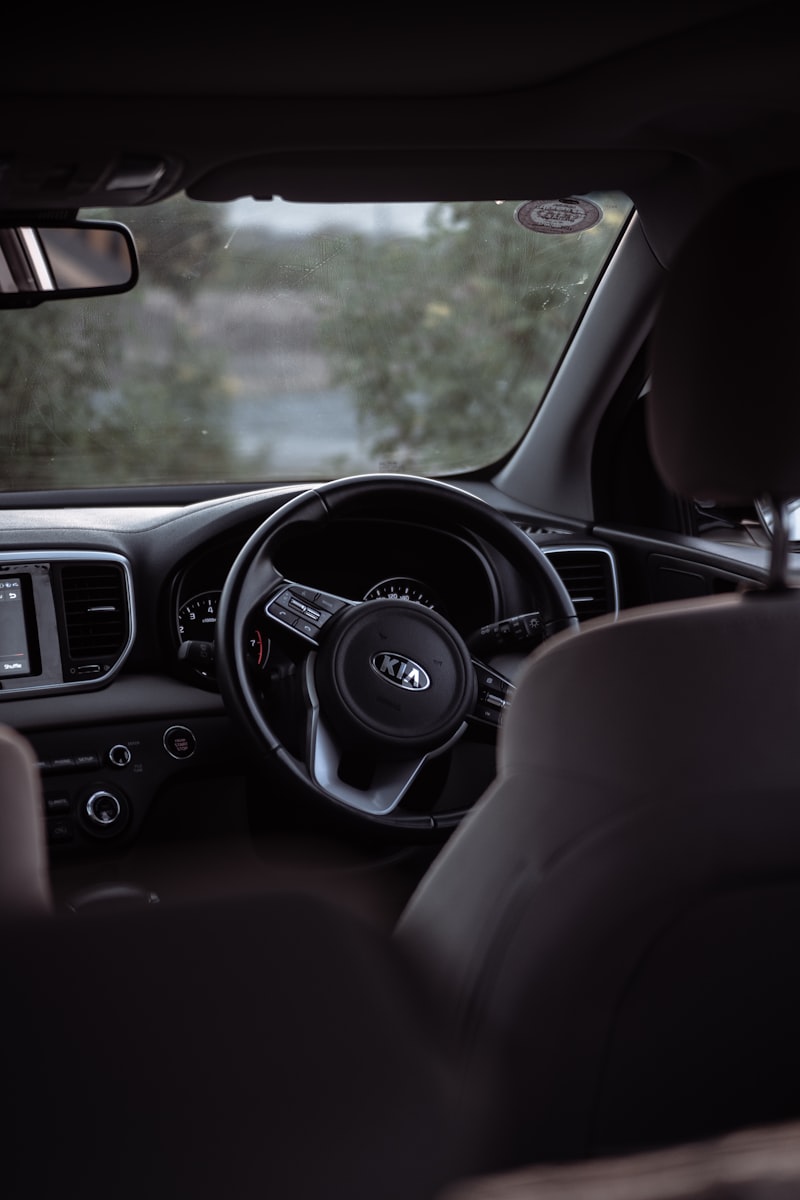Are you tired of dealing with problems in your 2000 Honda CRV? Well, worry no more! In this article, we will delve into some of the common issues that owners of the 2000 Honda CRV might encounter. Whether you’re a proud owner or considering buying one, it’s essential to know what potential problems you may face.
One prevalent problem with the 2000 Honda CRV is transmission failure. Some owners have reported experiencing difficulties with shifting gears or a complete loss of power. The culprit behind this issue could be a faulty transmission solenoid or a worn-out clutch. It’s crucial to address these problems promptly to avoid further damage and costly repairs.
Another concern that has plagued some 2000 Honda CRV owners is the malfunctioning air conditioning system. Imagine driving on a hot summer day only to find out that your AC isn’t cooling properly. This can be frustrating, especially when you need relief from the scorching heat. Common causes for AC problems in the 2000 Honda CRV include refrigerant leaks, compressor failures, or faulty blower motors. Regular maintenance and timely inspections can help prevent these issues.
Additionally, electrical problems have been reported by some owners. These issues can manifest in various ways, such as malfunctioning power windows, door locks, or dashboard lights. Faulty wiring or blown fuses are often the culprits behind these electrical glitches. Consulting a professional mechanic is recommended for diagnosing and resolving such issues effectively.
Furthermore, the 2000 Honda CRV has been known to experience premature wear and tear on its suspension components. Owners have reported problems with the struts, control arms, and sway bars, leading to a bumpy and uncomfortable ride. Regular inspections and timely replacement of worn-out parts can help maintain a smooth and enjoyable driving experience.
The 2000 Honda CRV, like any other vehicle, has its fair share of problems. From transmission issues to AC malfunctions, electrical glitches, and suspension woes, being aware of these potential problems is crucial for every owner. Regular maintenance and addressing any arising issues promptly can go a long way in ensuring that your Honda CRV runs smoothly and reliably for years to come.
Owners Concerned: Common 2000 Honda CR-V Problems and How to Address Them
Are you an owner of a 2000 Honda CR-V? If so, you might be interested in learning about the common problems that can arise with this model and how to address them. Owning a car comes with its fair share of concerns, but with the right knowledge, you can tackle these issues head-on.
One common problem that many 2000 Honda CR-V owners face is transmission failure. The transmission is responsible for transferring power from the engine to the wheels, and when it malfunctions, it can cause issues such as slipping gears or difficulty shifting. To address this problem, it’s crucial to have your transmission regularly serviced and inspected by a qualified mechanic. Additionally, using high-quality transmission fluid and avoiding excessive towing or hauling can help prolong the lifespan of your transmission.
Another concern among owners is faulty ignition switches. A faulty switch can lead to a variety of problems, including starting issues or stalling while driving. If you experience any of these symptoms, it’s essential to have your ignition switch inspected and replaced if necessary. Ignoring this issue could potentially leave you stranded or even pose a safety risk.
Furthermore, owners have reported problems with the air conditioning system in the 2000 Honda CR-V. Issues like weak airflow, lack of cooling, or strange noises can indicate a malfunctioning AC system. Regular maintenance, such as cleaning or replacing filters, and ensuring proper refrigerant levels, can help prevent these problems. If your AC system continues to give you trouble, it’s best to consult a professional technician who can diagnose and repair the issue effectively.
Being aware of the common problems that can occur with a 2000 Honda CR-V and knowing how to address them is vital for owners. Transmission failure, faulty ignition switches, and air conditioning problems are among the most frequently reported issues. By staying proactive with regular maintenance and seeking professional help when needed, you can keep your Honda CR-V running smoothly and enjoy many more miles on the road.
Mechanical Meltdown: A Deep Dive into the Top Issues Plaguing 2000 Honda CR-Vs

Introduction: If you’re a proud owner of a 2000 Honda CR-V or considering buying one, it’s essential to be aware of the potential mechanical issues that might come your way. In this article, we’ll take a comprehensive look at some of the top problems faced by 2000 Honda CR-V owners. By understanding these challenges, you’ll be better equipped to address them and ensure a smooth driving experience.
Engine Troubles: One of the primary concerns associated with 2000 Honda CR-Vs is engine-related issues. Some owners have reported experiencing overheating problems caused by radiator leaks or faulty cooling fans. Additionally, oil leaks from the engine and valve cover gaskets have also been reported. Regular maintenance and inspections can help detect and resolve these problems in a timely manner.
Transmission Woes: Another area where 2000 Honda CR-Vs have encountered difficulties is the transmission system. Some owners have reported issues with shifting gears, including rough shifting, slipping, or complete failure. These problems may stem from worn-out transmission components or inadequate fluid levels. It’s crucial to have your transmission regularly serviced to prevent costly repairs down the road.

Suspension Challenges: The suspension system of the 2000 Honda CR-V has also posed concerns for some owners. Instances of premature wear and tear on suspension components, such as ball joints and control arms, have been reported. These issues can lead to poor handling, increased tire wear, and a bumpy ride. Maintaining proper alignment and promptly addressing any signs of suspension problems can help mitigate these issues.
Electrical Gremlins: Electrical glitches have been reported in 2000 Honda CR-V models. Malfunctions with power windows, door locks, and interior lights have been cited by some owners. These problems could be due to faulty wiring, switches, or blown fuses. It’s advisable to consult a professional mechanic or an authorized Honda service center to diagnose and resolve these electrical issues effectively.
Conclusion: When it comes to owning a 2000 Honda CR-V, being aware of the potential mechanical challenges is crucial. By addressing engine troubles, transmission woes, suspension challenges, and electrical gremlins promptly, you can ensure a safer and more reliable driving experience. Regular maintenance, timely repairs, and seeking professional assistance when needed will help keep your Honda CR-V in top shape for years to come.
Reliability at Stake: The Achilles’ Heel of the 2000 Honda CR-V Revealed
Introduction: When it comes to finding a reliable and long-lasting vehicle, the 2000 Honda CR-V often stands out as a popular choice among car enthusiasts. With its compact design, comfortable interior, and impressive fuel efficiency, it has garnered a loyal following over the years. However, recent revelations have shed light on a concerning aspect that may challenge the vehicle’s reliability. In this article, we delve into the Achilles’ heel of the 2000 Honda CR-V, uncovering the potential issues that owners should be aware of.
The Transmission Troubles: One crucial area where the 2000 Honda CR-V has faced criticism is its transmission system. Some owners have reported experiencing problems such as premature failure, rough shifting, and even complete breakdowns. These issues can be a major inconvenience and cause significant financial strain for owners who find themselves facing hefty repair bills.
Potential Cooling System Woes: Another area of concern for the 2000 Honda CR-V lies within its cooling system. Over time, some owners have encountered leaks and overheating problems that can lead to engine damage if not addressed promptly. It is crucial for CR-V owners to stay vigilant, regularly checking for any signs of coolant leaks or abnormal temperature fluctuations, and seeking professional assistance at the first indication of trouble.

Electrical Gremlins: In addition to the transmission and cooling system issues, the 2000 Honda CR-V has also been known to experience electrical gremlins. Owners have reported problems with malfunctioning power windows, faulty door locks, and intermittent issues with dashboard lights. While these may seem like minor inconveniences, they can still impact the overall reliability and user experience of the vehicle.
Conclusion: While the 2000 Honda CR-V offers many desirable features, it is important for potential buyers and current owners to be aware of its Achilles’ heel. The transmission troubles, potential cooling system woes, and electrical gremlins can pose reliability challenges and require careful attention and maintenance. By staying proactive and addressing these issues promptly, owners can ensure a smoother driving experience for their beloved CR-V. Ultimately, being informed about these potential pitfalls empowers consumers to make well-informed decisions and take the necessary steps to maintain the longevity and reliability of their 2000 Honda CR-V.
Worrisome Woes: Why 2000 Honda CR-V Owners Are Voicing Frustration
Are you a proud owner of a 2000 Honda CR-V? If so, you might be familiar with the worrisome woes that some fellow owners are expressing. The 2000 Honda CR-V has gained popularity as a reliable and practical SUV, but it’s not without its share of frustrations. Let’s delve into why some owners are voicing their concerns.
One of the main sources of frustration for 2000 Honda CR-V owners is the transmission issues. Some have reported experiencing rough shifting, slipping gears, or even complete transmission failure. This can be a major inconvenience and, in some cases, a costly repair. Imagine being on a road trip or rushing to work only to find yourself stuck on the side of the road due to a faulty transmission.
Another common complaint revolves around the air conditioning system. Many owners have noticed that their CR-Vs struggle to provide adequate cooling during hot summer months. This can be particularly bothersome, especially if you live in an area with scorching temperatures. Feeling comfortable and cool while driving is essential, and when the AC falls short, it can lead to some rather frustrating moments.
Furthermore, several 2000 Honda CR-V owners have voiced concerns about the vehicle’s fuel efficiency. While the CR-V generally boasts decent mileage, some owners have noted that their vehicles consume more fuel than expected. With rising gas prices, this can take a toll on both your wallet and the environment.
It’s important to remember that these issues may not be universal, and many 2000 Honda CR-V owners have had positive experiences with their vehicles. However, it’s crucial to address these concerns and seek appropriate solutions if you find yourself facing similar problems.
The 2000 Honda CR-V, despite its reputation for reliability, has left some owners frustrated with certain issues. Transmission problems, inadequate air conditioning, and subpar fuel efficiency have troubled a portion of CR-V owners. If you’re one of them, it’s essential to explore options for resolving these problems and ensure that your driving experience remains as smooth and enjoyable as possible.

